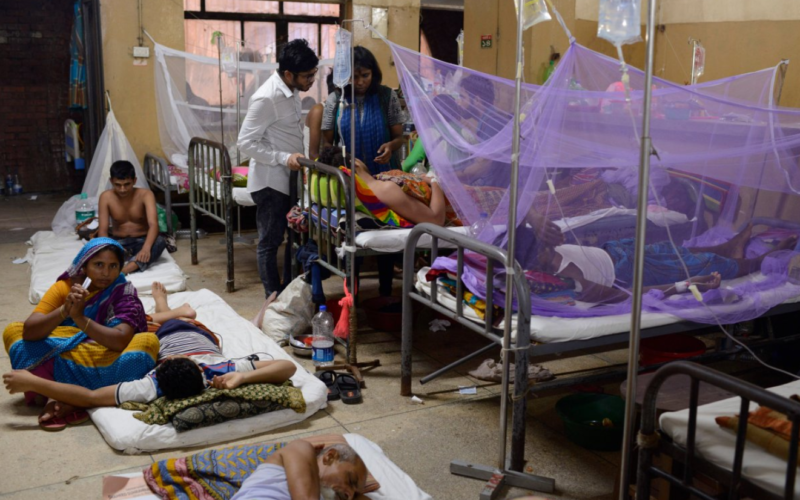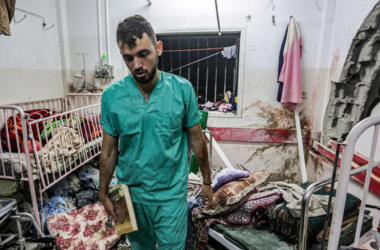Dengue fever, a mosquito-borne viral illness, has been a recurring health concern in Bangladesh. However, the scale of the current outbreak has left both healthcare professionals and the general public deeply worried. Dengue cases have been steadily rising, straining the country’s healthcare infrastructure and resources. As of 2023, the data reveals a staggering death toll of at least 1,017 individuals and nearly 209,000 infections, marking this year as the deadliest since the initial recorded dengue epidemic in 2000.
The current fatality count stands at nearly four times the total number of deaths reported last year, which saw Bangladesh record 281 dengue-related fatalities.
Several factors have contributed to the severity of the dengue outbreak in Bangladesh. Aedes mosquitoes, primarily Aedes aegypti and Aedes albopictus, are the vectors responsible for transmitting the dengue virus. These mosquitoes breed in stagnant water, making urban areas with inadequate sanitation and water management particularly susceptible to dengue outbreaks. Rapid urbanization, population growth, and climate change have also played a role in creating favorable conditions for mosquito breeding.
The escalating number of dengue cases has put immense pressure on Bangladesh’s healthcare system. Hospitals are struggling to accommodate the surge in patients, leading to overcrowding and shortages of essential medical supplies. Healthcare workers are working tirelessly to provide care to those affected by the virus, but the sheer volume of cases is overwhelming.
In response to the surge in cases, the government has intensified its anti-dengue campaign, encompassing activities such as raising awareness and implementing measures to eliminate mosquito larvae following periods of rainfall, according to officials.
Nonetheless, the absence of comprehensive preventive measures has allowed the dengue-carrying mosquito to proliferate throughout the entirety of Bangladesh. Kabirul Bashar, an entomologist and professor of zoology at Jahangirnagar University, emphasized that from 2000 to 2018, dengue was primarily confined to Dhaka city. However, in 2019, it spread to various cities, and this year, it has extended its reach into rural areas as well.
Bangladesh’s struggle against the dengue outbreak serves as a stark reminder of the challenges posed by vector-borne diseases in an increasingly interconnected world. The country’s healthcare system and society at large must work together to address the current crisis and build resilience against future outbreaks. International collaboration and support will play a crucial role in helping Bangladesh overcome this unprecedented dengue challenge.








